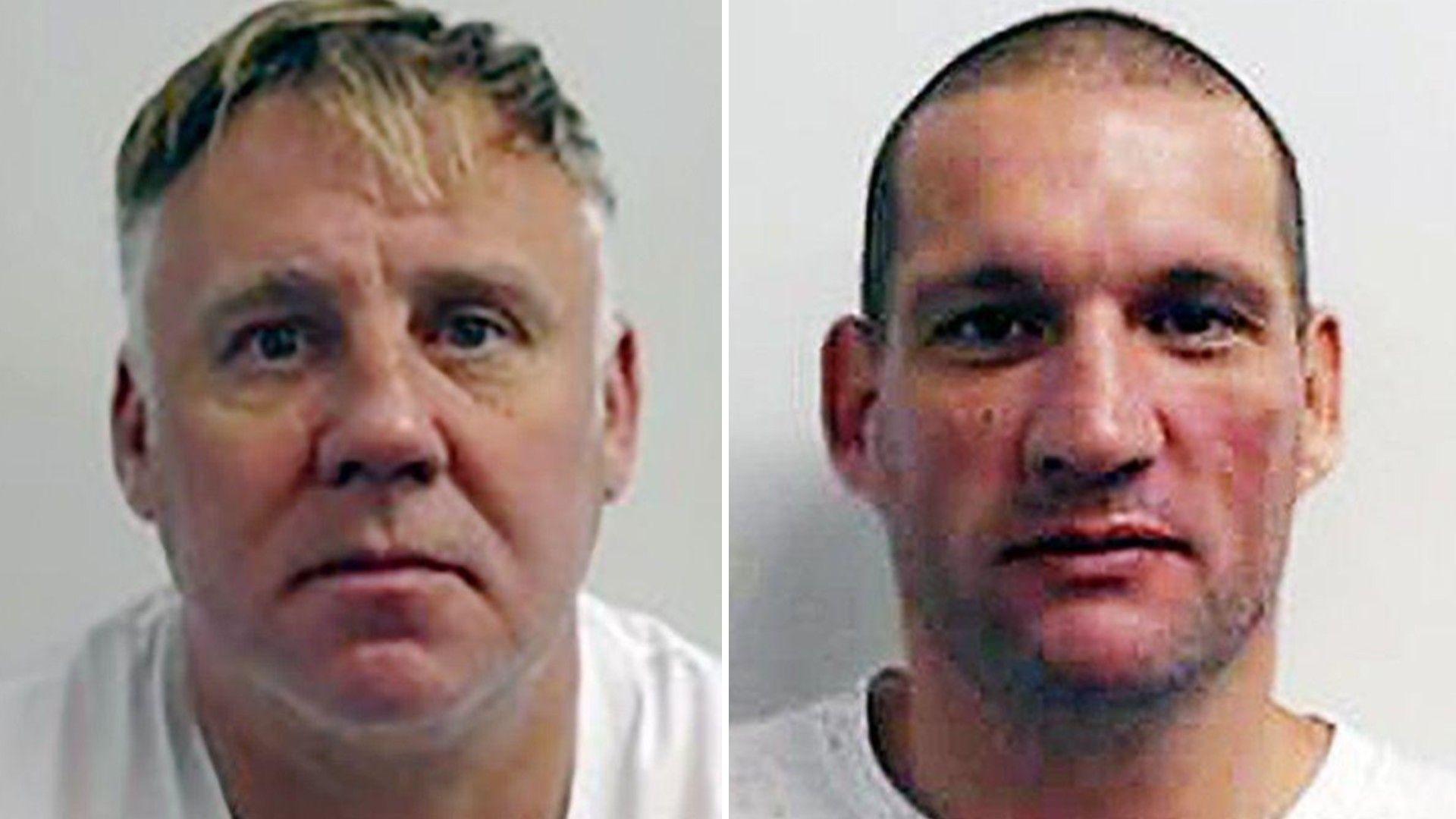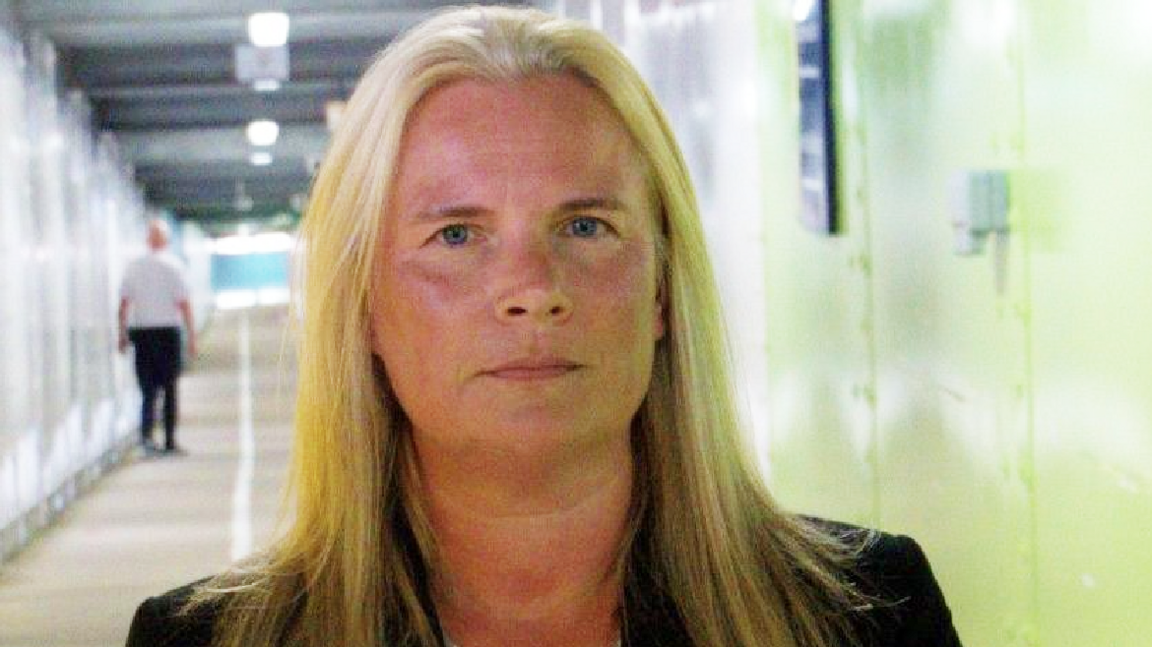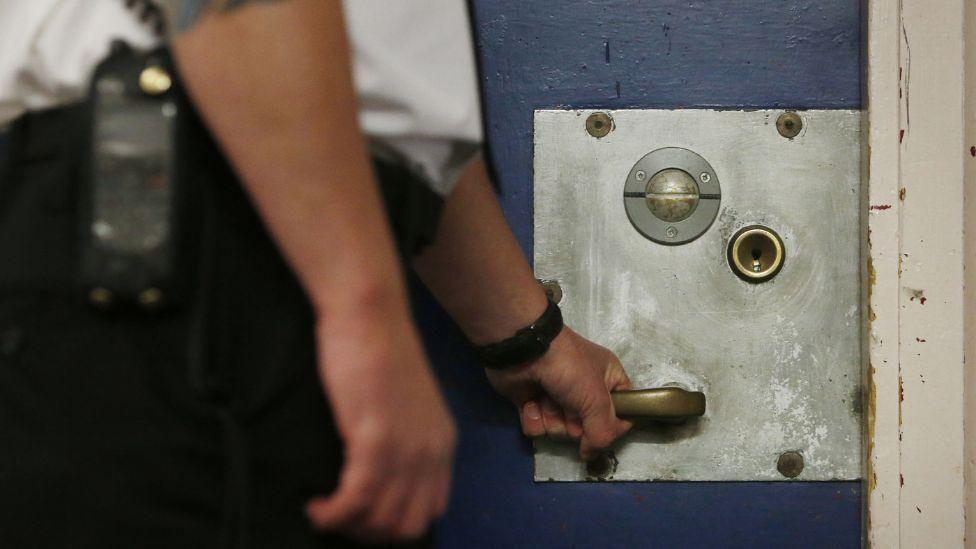'Game of chess' to keep gangsters apart in jail as attacks rise

Jamie Stevenson (left) and James White were both involved in drug smuggling
- Published
The jailing of hundreds of Scottish gangsters has left prison staff playing what has been described as "a daily game of chess" as they try to keep violent rivals apart.
The Scottish Prison Service says more inmates are being held in segregation than ever before, amid a rise in attacks linked to serious organised crime groups (SOCGs).
The service's chief executive says the recent gangland feud in central Scotland has raised the temperature behind bars, and that staff are carrying out "a heroic task" in overcrowded jails.
The Prison Officers' Association says many of its members have been left fearing for their safety because of threats and intimidation from gang-affiliated criminals.
Justice Secretary Angela Constance said the Scottish government was aware of the impact of the rise in inmates and organised crime on the prison system, and was working with partners to reduce the harm caused.
Man charged over gang feud taking arrest total to 55
- Published19 July
Double funeral for gangland pair shot dead in Spain
- Published4 July
Murder and mayhem: The story of Glasgow's deadly gang feud
- Published16 December 2024
Scotland's prison population stood at 8,251 on Monday. About 660 of those inmates are thought to have "strong SOCG associations" and many others are linked to lower level, local gangs.
In recent years, Police Scotland and prosecutors at the Crown Office have secured dozens of gangland convictions.
These have included those of top level figures like Jamie "Iceman" Stevenson and James "The Don" White, who were both involved in international drug smuggling.
But tension has ramped up this year, thanks to a wave of gangland violence and the murder of two senior Scottish figures in Spain.
Add overcrowding to the mix, and the end result is a jail system under significant pressure.
Gunned down in Spain
The feud began in March with attacks against properties and people associated with Edinburgh gangster Mark Richardson.
He has links with the Daniels crime family in Glasgow, long-time rivals of another west coast crime group, the Lyons.
The violence spread from Edinburgh to Lanarkshire and Glasgow, targeting people linked to the Daniels family.
When two senior members of the Lyons crime group were shot dead in Spain on 31 May, it was widely assumed the murders were connected to the feud back in Scotland.
Ross Monaghan and Eddie Lyons Jnr were gunned down at a bar in Fuengirola in the Costa Del Sol.
Within days, fearing reprisals, Police Scotland issued a carefully-worded statement insisting there was "no current evidence" to suggest the double shooting was "orchestrated from Scotland".

Gillian Walker is the governor at HMP Shotts
The murders of Ross Monaghan and Eddie Lyons Jnr would have caused great shock within HMP Shotts, where prisoners linked to the Lyons gang form the largest group of SOCG inmates.
It is the only jail in Scotland which solely deals with people on sentences of four years or more. Of its 538 prisoners, 221 are serving life for murder.
With 30 years' experience in the service, HMP Shotts governor Gillian Walker says managing prisoners linked to serious organised crime is a bigger challenge than ever before.
"It's a daily battle to keep on top of it," she said. "For want of a better phrase, it's moving chess pieces constantly.
"We're trying to keep up with things and understand a moving picture. As it moves in the community, it moves in prisons as well."
Closer co-operation with the police helps the SPS decide where prisoners should be held, although gang affiliations aren't always clear and can change.
Across Scotland's jails, the number of violent incidents has risen from 95 a month in 2022 to 135 a month this year. Some of those incidents are related to organised crime rivalry.
Scottish Prison Service chief executive Teresa Medhurst said: "It's very worrying, and it's not just assaults on individuals and different factions, it's assaults on our staff."

Teresa Medhurst said the recent feud was changing the temperature in some jails
The number of prisoners held "out of association" - kept apart from other inmates - is at an all-time high. They have to be accommodated, exercised and fed separately.
Mrs Medhurst said the recent feud was "changing the temperature" in some jails as inmates waited to see how it would play out.
"It is a heroic ask that staff are undertaking just now, to keep on top of keeping people safe," she said.
"There are so many factions, so many people who need to be kept separate, that it is making life very difficult for them."
The chief executive says overcrowding is making things worse because staff don't have enough time to gather intelligence and build relationships with prisoners.
Hundreds of short-term inmates have been released early but the population is edging back up towards its previous all-time high of 8,420.
Mrs Medhurst says it's a "realistic expectation" that that record, set in 2012, will be broken.
Angela Constance said the Scottish government had taken a range of actions to address challenges in prisons, including the early release scheme for short-term inmates.
She said: "We are continuing to work with the Scottish Prison Service and partners on further measures to manage the complex prison population in a sustainable way.
"In the longer term, this will be informed by the recommendations of the independent Sentencing and Penal Policy Commission, which we established earlier this year and is due to report by the end of 2025."

About 660 inmates are thought to have strong associations with gangs
Phil Fairlie, the Prison Officers' Association's assistant general secretary for Scotland, says officers have had their cars firebombed and gangsters have tried to manipulate and recruit vulnerable staff.
"They've spent a lifetime exploiting people and they try to do exactly the same to prison officers," said Mr Fairlie.
"We're talking about people who are high up enough the ladder of organised crime gangs, that the level of threat and intimidation is beyond what staff have been used to before.
"It is constant, it is hectic and it's very stressful.
"We're constantly talking to staff who've got fears and concerns for their safety, just because they're doing their job.
"That level of fear and anxiety should be a worry to everybody."
Drone incidents
Teresa Medhurst says in the last three or four years, SOCGs have come to regard prisons as places where they can expand their business.
Drones are being used on a weekly basis to get dangerous psychoactive drugs, weapons and mobile phones into jails.
Mrs Medhurst said that had been "a game changer".
She said the packages carried by a single drone were often worth more than £10,000.
"We had a recent incident at one establishment where we think there were a number of drone incidents.
"As a consequence of that we had a number of people who had to be treated at prison and in hospital."
To tackle the problem, anti-drone grills are being fitted over cell block windows throughout the prison estate.